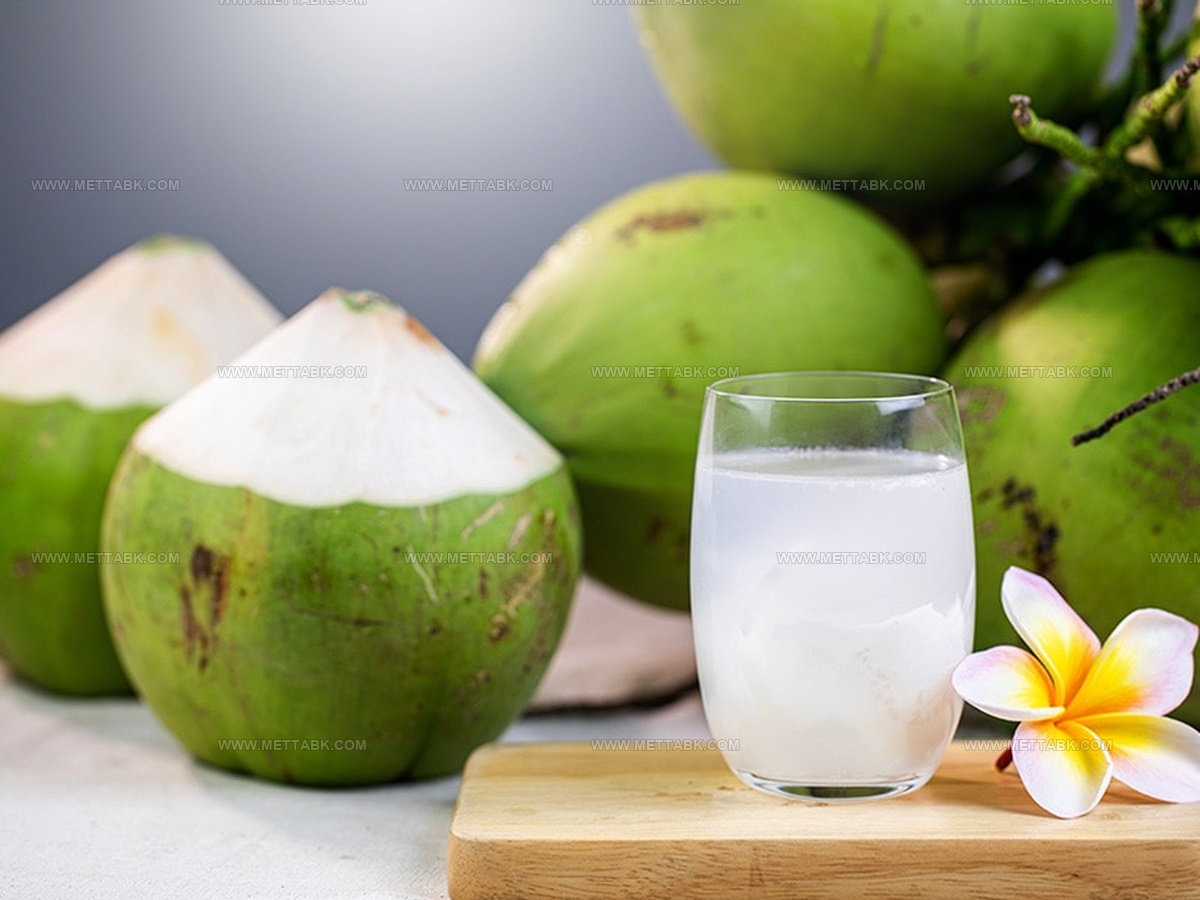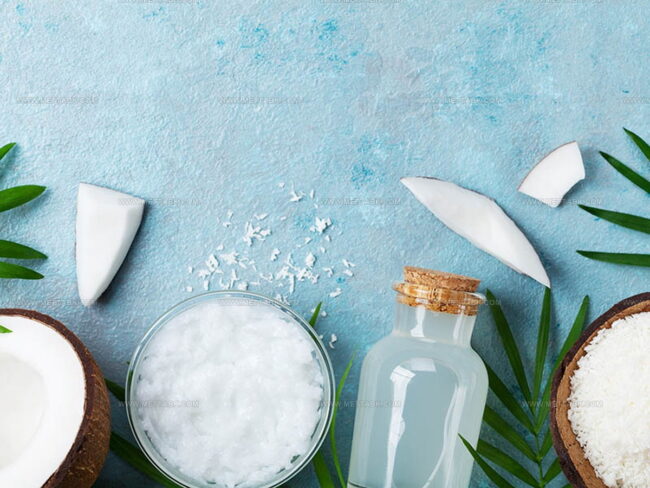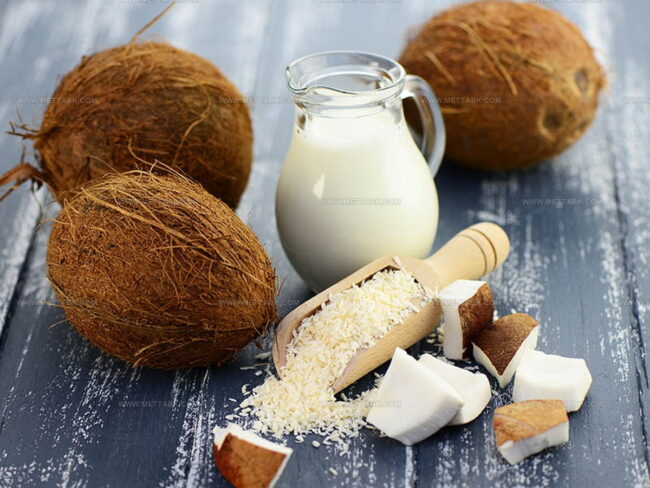Coconut Milk or Coconut Water: Know the Difference
Coconut milk and coconut water represent two distinct products from the same tropical fruit, despite common confusion between them.
Liquid treasures offer unique tastes and textures that set them apart in culinary applications.
The creamy, rich consistency of coconut milk comes from pressing grated coconut meat with water, creating an opaque white substance.
In contrast, the clear liquid found naturally inside young green coconuts is what we call coconut water.
Many health enthusiasts appreciate both options for different reasons - one for its creamy richness in curries and desserts, the other for natural hydration.
Traditional cuisines across Southeast Asia have relied on these coconut derivatives for centuries as staple ingredients.
From nutrition profiles to cooking uses, understanding what makes each special helps you choose the right one for every situation.
Ready to learn exactly how these two coconut products differ and when to use each one?
Coconut Milk vs. Water: Find Out The Differences
Coconut milk and coconut water differ in several key ways, as shown in our handy comparison table.
| Feature | Coconut Water | Coconut Milk |
| Definition | Natural, clear liquid inside young coconuts | Processed liquid made from grated coconut flesh |
| Types | Pure, canned (pasteurized), pressed (with bits) | Refrigerated, full-fat, lite, powdered |
| Appearance | Clear, transparent, sometimes slightly cloudy/pink | Milky white, thick, creamy |
| Flavor and Aroma | Light, subtly sweet, nutty, floral notes | Rich, fatty, sweet, nutty |
| Texture | Thin, watery | Thick, creamy, viscous |
| Nutrition Facts | Low calorie, mostly water and carbs; rich in potassium and B vitamins | Higher calories; high fat (mostly saturated), moderate protein, vitamins B & C, minerals |
| Culinary Uses | Hydrating drink, smoothies, natural sweetener | Cooking ingredient in curries, soups, sauces; dairy substitute |
Definition
Coconut water is the natural liquid inside young, green coconuts; clear and ready to drink with no processing.
Coconut water comes naturally from any fresh coconut type as part of the moisture absorbed by palm tree roots.
This moisture travels through the entire tree, feeding it along with the coconut fruit. Inside the coconut, this liquid is technically called the "liquid endosperm" which gradually solidifies into coconut meat as the fruit ages.
Some water remains even in older coconuts since not all endosperm turns solid.
Coconut milk, by contrast, is a processed product made by coconut flesh with water, yielding a thick, creamy liquid often used in cooking.
The process starts by cutting the white flesh of brown coconuts into small pieces, then soaking them in hot water. After soaking, coconut cream rises to the top and gets skimmed off, while the remaining liquid is strained to remove particles, resulting in smooth coconut milk.
Types of Coconut Milk and Water
Coconut water is available pure (fresh or canned), pasteurized for shelf stability, or pressed with bits of flesh for texture.
Coconut milk comes in multiple forms: refrigerated drinkable versions, canned full-fat and lite options, and powdered varieties for mixing at home.
Appearances
Coconut water is a clear, transparent liquid that resembles plain water. Sometimes, it can appear slightly cloudy or have tiny bits of coconut flesh floating in it, especially if it’s freshly extracted or pressed.
In some cases, coconut water might even turn a faint pink color naturally, which doesn’t indicate spoilage but is due to chemical reactions with light and oxygen.
Coconut milk has a thick, creamy, and opaque white appearance.
This milky look comes from the grated coconut flesh used in its production, which releases oils and solids during processing. The consistency can range from slightly thin and pourable to very rich and viscous, depending on how much water is added or if it’s full-fat versus lite coconut milk.
Unlike coconut water, coconut milk never looks transparent because it’s essentially an emulsion of coconut oil, water, and solids.
Flavor And Aroma
Coconut water offers a light, refreshing flavor that is subtly sweet with a hint of natural nuttiness and floral notes. Its taste is clean and mild, making it a popular hydrating beverage, especially in tropical regions.
Depending on the maturity of the coconut and environmental factors, the flavor can vary slightly, from sweeter in younger coconuts to a bit tangier or even slightly salty in some cases.
Coconut milk has a much richer and more pronounced flavor.
It carries a creamy, nutty, and slightly sweet taste with strong coconut undertones. The aroma of coconut milk is deeper and more intense than coconut water, often described as fragrant and tropical with a hint of buttery richness.
This distinct flavor and scent make coconut milk a popular ingredient in many savory and sweet dishes, especially in Southeast Asian and Caribbean cuisines.
Texture
Coconut water has a very light and watery texture, almost like plain water but with a slight natural viscosity due to the presence of natural sugars and minerals. It feels smooth and refreshing on the palate, making it easy to drink straight from the coconut or in packaged form.
Coconut milk has a thick, creamy, and rich texture that resembles dairy milk or light cream. Its viscosity can vary depending on the fat content and processing method - full-fat coconut milk is much denser and silkier, while lite or diluted versions are thinner but still more substantial than water.
Nutrition Facts
Coconut water is low in calories and fat but rich in electrolytes like potassium and B vitamins. Coconut milk is calorie-dense due to high saturated fat and protein content, offering energy and creaminess but should be consumed moderately.
Check this table for more info about nutrients of coconut water and coconut milk.
| Nutrient | Coconut Milk (per 100g) | Coconut Water (per 100g) |
| Calories | 230 kcal | 19 kcal |
| Carbohydrates | 5.54 g | 3.71 g |
| Fat | 23.8 g | 0.2 g |
| Protein | 2.29 g | 0.72 g |
| Water | 67.6 g | 95 g |
| Calcium | 16 mg | 24 mg |
| Iron | 1.64 mg | 0.29 mg |
| Magnesium | 37 mg | 25 mg |
| Phosphorus | 100 mg | 3 mg |
| Potassium | 263 mg | 250 mg |
| Sodium | 15 mg | 105 mg |
| Zinc | 0.67 mg | 3 mg |
| Vitamin B1 (Thiamine) | 0.026 mg | 0.03 mg |
| Vitamin B3 (Niacin) | 0.76 mg | 0.08 mg |
| Vitamin B6 | 0.033 mg | 0.032 mg |
| Vitamin C | 2.8 mg | 2.4 mg |
Culinary Uses
Coconut water is a naturally refreshing, slightly sweet liquid often enjoyed fresh or packaged as a hydrating beverage rich in electrolytes. It’s commonly used as a base for smoothies and juices, adds a subtle tropical flavor to cocktails and mocktails, and can serve as a cooking liquid in Southeast Asian recipes.
Coconut milk, in contrast, is a staple in many Southeast Asian, Caribbean, and Indian cuisines, especially in curries, soups, sauces, and marinades, where it balances spicy and savory flavors. Coconut milk also features in desserts like puddings, ice creams, and traditional sweets, and acts as a dairy-free alternative in baking and beverages such as smoothies and coffee.
What is Shelf Life of Coconut Milk and Coconut Water
Check this table summarizing the shelf life of coconut milk and coconut water based on typical storage conditions:
| Product | Packaging Type | Shelf Life (Unopened) | Shelf Life (Opened) | Storage Recommendations |
| Coconut Water | Fresh (natural) | Immediate consumption recommended | Not applicable | Consume immediately after opening |
| Coconut Water | Canned/Carton | 6+ months (unopened) | 4–6 weeks in fridge | Refrigerate after opening; avoid long room temp storage |
| Coconut Milk | Canned | 2–3 years (unopened) | 1 week in fridge | Refrigerate after opening; use within one week |
What Are Precaution is Using Coconut Water and Coconut Milk?
You should enjoy both in moderation and consider any personal health conditions when including coconut water or milk in your diet. Here are some precautions to take note.
Coconut Water Precautions
Coconut Milk Precautions
Coconut Milk vs. Water: Are They Swappable?
Coconut milk and coconut water are quite different, so they generally aren’t interchangeable in recipes.
For example, using coconut water in place of coconut milk in a curry will result in a much thinner, less creamy dish, while replacing coconut water with coconut milk in a beverage or hydrating recipe would make it overly rich and heavy.
However, in some creative recipes, you might adjust quantities and cooking methods to experiment, but generally, it’s best to use each as intended for the best results.
Got Questions? We’ve Got Solutions
1. Can I use coconut water instead of coconut milk in cooking?
Coconut water won't work as a substitute in most recipes calling for coconut milk. Coconut milk is creamy and rich, while coconut water is thin and clear. Your curries and desserts would lack the thickness and fat content needed for proper texture and flavor.
2. Which has more calories, coconut milk or coconut water?
Coconut milk contains significantly more calories - about 445 calories per cup for full-fat versions, while coconut water only has around 45-60 calories per cup. This makes coconut water a better choice for hydration or low-calorie diets.
3. Do coconut milk and coconut water offer different health benefits?
Yes! Coconut water is excellent for hydration with natural electrolytes and potassium. Coconut milk provides healthy fats, vitamins E and C, and minerals like iron and magnesium, but in a much more calorie-dense form.
4. How long do coconut milk and coconut water last once opened?
Coconut water typically lasts 2-3 days in the refrigerator after opening, while coconut milk can last 5-7 days when refrigerated properly in an airtight container.




Nate Harper
Founder & Recipe Curator
Expertise
Single-Recipe Development, Farm-to-Table Cooking, Seasonal Menu Planning, Culinary Storytelling, Home Kitchen Innovation
Education
Cascade Culinary Institute – Central Oregon Community College
Certificate in Culinary Arts
Focus: Farm-to-table cuisine, sustainable cooking practices, and seasonal recipe creation.
Nate studied under experienced chefs who emphasized local sourcing, minimal waste, and building recipes from fresh, simple ingredients.
Nate Harper is the founder and creative force behind Make, Take, Bake. Raised in the wild beauty of Oregon’s high desert, Nate grew up surrounded by family gardens, farmers’ markets, and home kitchens that celebrated the seasons.
His early love for simple, honest food evolved into a professional passion when he attended Cascade Culinary Institute, where he sharpened his skills in creating recipes that are sustainable, satisfying, and made for everyday life.
Nate’s goal is to make cooking feel accessible, free of fuss, and full of flavor. He believes a single, thoughtfully built dish can stand alone, and sometimes even steal the show.